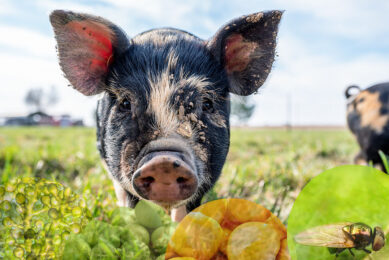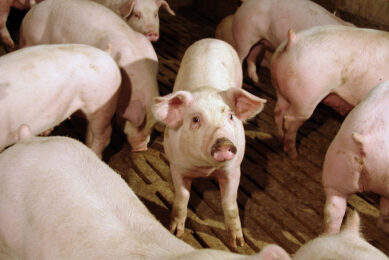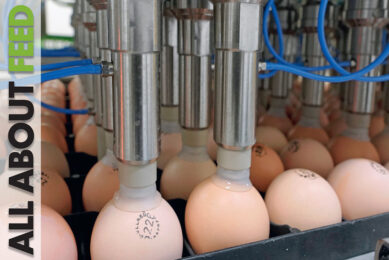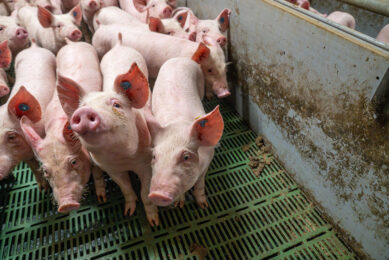Antibiotics in swine feed encourage gene exchange
A study published in the online journal mBio shows that adding antibiotics to swine feed causes microorganisms in the guts of pigs to start sharing genes that could spread antibiotic resistance.
The study by Heather Allen and her colleagues at the USDA National Animal Disease Center (NaDC) in Ames, Iowa, adds to the sum of knowledge about what happens to the microorganisms that populate animal digestive tracts when they are exposed to low, persistent levels of antibiotics.
The researchers studied how two in-feed antibiotic formulations affect prophages, segments of DNA found in bacteria that can encode antibiotic resistance genes and other genes that bacteria may use.
Prophages can cut themselves out of the larger chromosome of bacterial DNA in a process called induction, then replicate and package themselves as viruses. These viruses explode the cell from the inside then move on to infect other organisms and deliver their genes.
Allen, who is lead author on the study, says when pigs were fed antibiotics, the actual numbers of antibiotic resistance genes carried by the phages remained steady, but the microorganisms still reacted to the presence of antibiotics.
Prophages underwent a significant increase in induction when exposed to antibiotics, indicating that medicating the animals led to increased movement of prophage genes among gut bacteria.
Gene transfer
“Induction of the prophages is showing us that antibiotics are stimulating gene transfer,” says Allen. “This is significant because phages have previously been shown to carry bacterial fitness genes such as antibiotic resistance genes.”
Studies that explore the impacts of in-feed antibiotics most often focus on the bacterial residents of the gut, according to Allen, but phages and other viruses move a significant amount of genetic information around the community.
This makes changes in prophage induction an important collateral effect of antibiotic treatment, she says.
Resistance genes are the unit of currency among microbes experiencing the duress of an antibiotic, so following the movement of genes is arguably more important than following certain changes in bacterial communities.
And if bacteria in humans acquire resistance genes from animals, there can be serious health consequences.
“What’s important is the transfer of a gene that could get into the wrong place at the wrong time,” says Allen. “Increased gene transfer is a critical event in the evolution of gut bacteria.”
Join 26,000+ subscribers
Subscribe to our newsletter to stay updated about all the need-to-know content in the feed sector, three times a week. Beheer
Beheer









 WP Admin
WP Admin  Bewerk bericht
Bewerk bericht